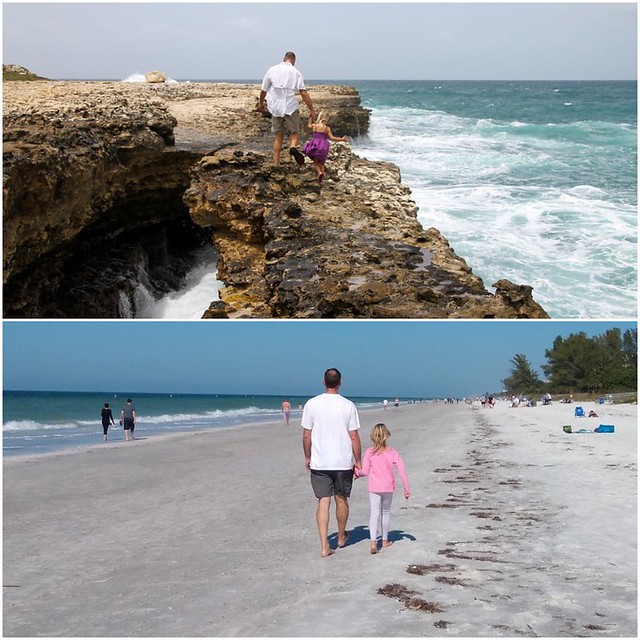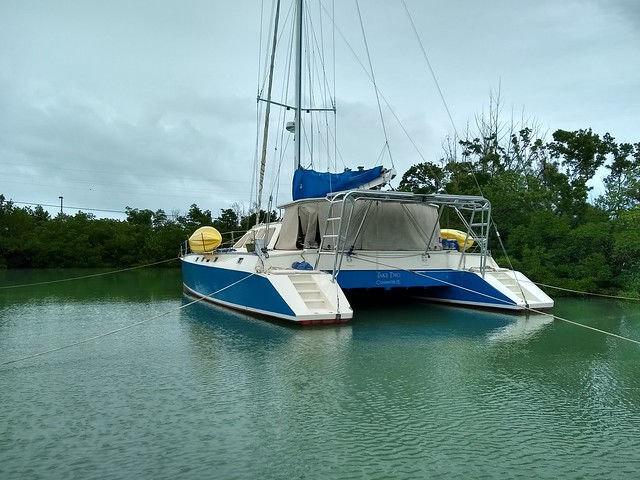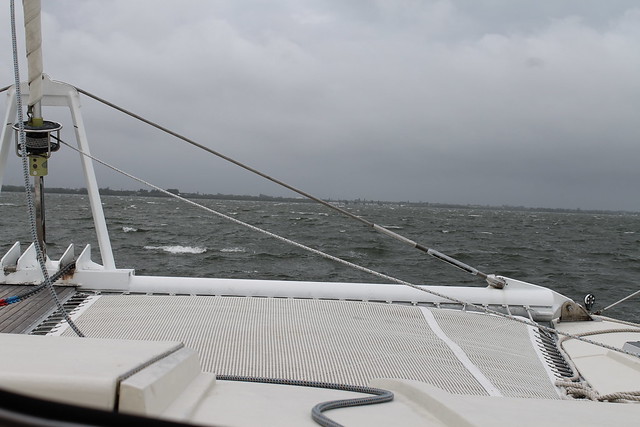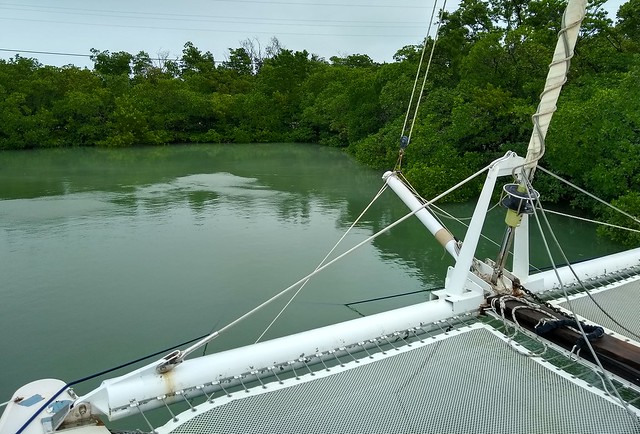Are you weary? Perhaps you are weary of 2020, of the pandemic or its cascading consequences, of continued social or economic or political disruption that means your normal safety net is not catching you. Here in the hurricane belt, we are weary of a hurricane season that seemed to last forever. We have heard news from friends in Guatemala and the island of Providencia, places that were recently devastated by the late-season storms. While I am personally in a good place at the moment, I am weary of all the sad news. I left little pieces of my heart in places where there is great suffering, and I bear a burden even when I am smiling.
At the same time, it is not a year to take things for granted, and I am encouraged because we have been able to visit with our family and host nieces and nephews on our boat, some for the first time, during the week of Thanksgiving. I feel more grateful this year than usual; life is fragile, and I am counting blessings large and small.
Weariness shows us the limits of our self-sufficiency. We can only carry so much on our own before we buckle under the weight. I have learned about that this year while carrying around sadness that is often not even my own. We carry the weight of responsibility for our families, our friends, our own decisions and well-being. We carry the things we witness, like violence, bad news, and environmental destruction. And we carry things for which we couldn’t possibly be responsible, but feel their weight just the same. And it drags us down, slowly sucking away joy and motivation and hope. We feel heavy and dark. We feel it, physically, in our necks and shoulders and backs. Perhaps that is why the words of Jesus in the gospel of Matthew have always appealed to me:
“Come to me, all you who are weary and burdened, and I will give you rest. Take my yoke upon you and learn from me, for I am gentle and humble in heart, and you will find rest for your souls. For my yoke is easy and my burden is light.” (11:28-30)
A good friend recently explained what she had learned about the way oxen are trained. While two young oxen are often raised and trained as a team, a young ox can also be trained with an older, more experienced ox. In this case, the older ox wears the bow of the yoke more tightly so that it does most of the work while the less-experienced ox is learning. The young ox follows the lead of the older ox but does not carry the weight because the bow is fastened more loosely. Imagine that—walking through life, through hardship—yoked with someone who can carry the burden for you and show you which direction to turn.
Similarly, I love it when Jay holds Rachel’s hand. It melts my heart to see my husband’s tenderness to our daughter, and to see the perfect picture of trust as Rachel walks along, linked to that big, strong man. Holding his hand, she’s able to do things she otherwise wouldn’t, like walk across the Devil’s bridge in Antigua, a natural rock formation where the crashing waves have worn the shoreline down and left a treacherous walkway. You have to time your trip between waves so that you don’t get wet, or worse, get swept off the bridge and onto the sharp rocks below. She also holds his hand while crossing a busy street or walking in a crowd where she doesn’t want to get lost among strangers. His firm grip provides a sense of security and protection. Other times, she holds his hand while on a casual stroll, or while walking on the beach, and their physical connection is a sign of companionship and emotional closeness.
This is what it feels like to walk with God. I am beyond debating whether he’s “there” or not—it would be like Rachel doubting whose hand she’s holding! My faith has given me the confidence that no matter what is going on in my life, I am not alone. God is there, offering comfort and companionship. I can do things even when I am afraid, sad, or worried, because someone stronger than I am is holding onto me. Sometimes life is a walk on the beach—I am happy, feeling thankful, acknowledging the beauty in Creation. But other times, it is a narrow pass over treacherous rocks, and I’m holding on for dear life, trying not to be swept away.
I once prayed that I would learn to depend on God. It was stupid, I know, like praying for patience and suddenly getting a cosmic pop quiz whereby you find the limits of what you can handle. That was 2004, the year we moved to Florida with two toddlers and a new baby. I hadn’t yet made a friend, my parents divorced after 38 years of marriage, the pastor of the church we attended cheated on his wife, Jay traveled for work, and four hurricanes made landfall in our part of Florida (Dean, Francis, Ivan and Jean). I couldn’t even trust the lights to stay on. It was the year I became a morning coffee-drinker and got consistent with my prayer-and-devotions. I did learn to trust God, to sense his presence, to find peace in the middle of a hard and lonely time. It was an invaluable lesson that I have carried into other seasons of life—it made it possible for this neurotic nail-biter to move onto a sailboat and brave storms at sea, and it helps right now.
When times are hard, when all else fails—family, friends, health, finances, church, experts, government officials, self-confidence, even the elements of nature—where does your stability come from? Are you yoked to someone strong enough to handle the chaos so that you can take a deep breath and carry on? My prayer for you is that you will know peace in this hard time, find rest for your soul, and hold tightly to the hand of a Father who does not fail.
“Do you not know? Have you not heard? The Lord is the everlasting God, the Creator of the ends of the earth. He will not grow tired or weary, and his understanding no one can fathom. He gives strength to the weary and increases the power of the weak. Even youths grow tired and weary, and young men stumble and fall; but those who hope in the Lord will renew their strength. They will soar on wings like eagles; they will run and not grow weary, they will walk and not be faint.” (Isaiah 40:28-31)








